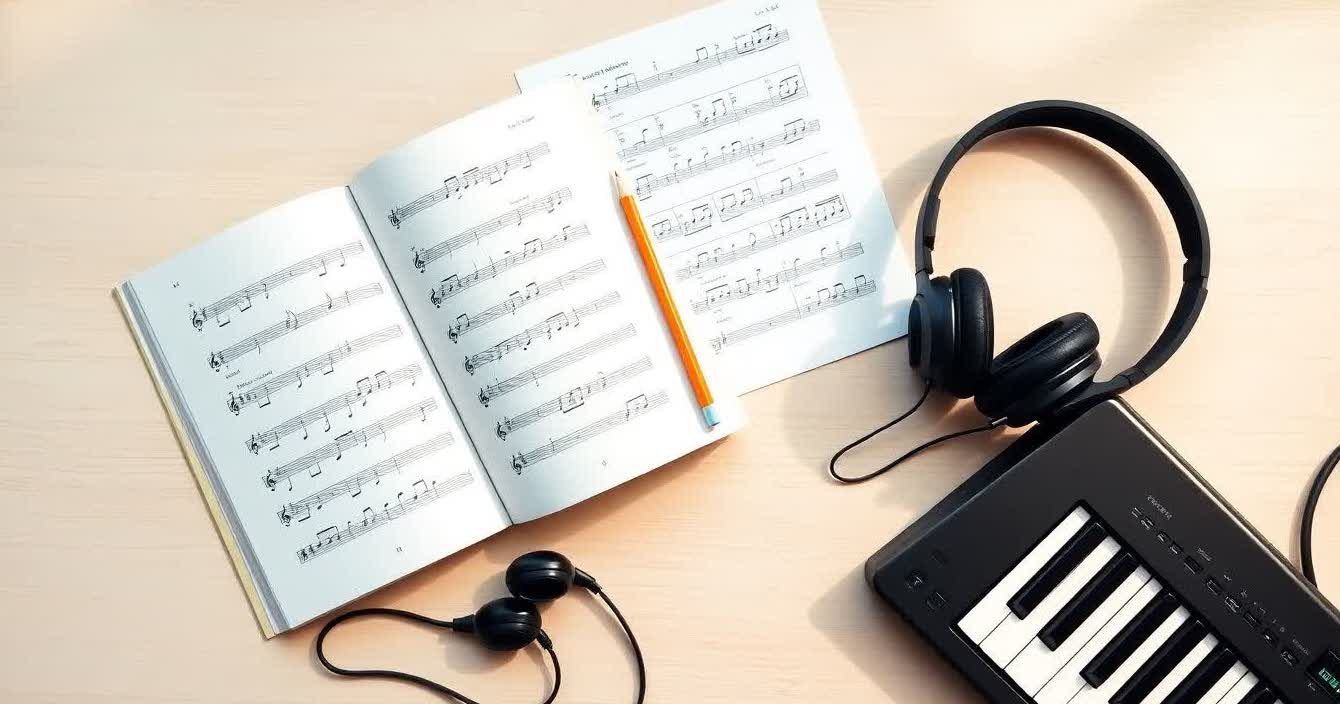Perfect pitch — also known as absolute pitch — is the rare ability to identify or reproduce any musical note without needing a reference tone. While some musicians are born with it, many others train their ears over time to develop pitch recognition skills that closely mimic perfect pitch.
In this guide, we’ll explore science-backed training methods, practical exercises, and the best tech tools to help you sharpen your musical ear and improve your pitch recognition — whether you're a beginner or a seasoned musician.
What Is Perfect Pitch?
Perfect pitch allows you to:
- Name any note just by hearing it, without needing a reference note for comparison.
- Sing a specific pitch on command, like singing an A440 or a middle C accurately.
- Recognize key signatures without instruments by simply hearing a piece of music.
- Identify tuning issues or wrong notes instantly, a valuable skill in both performance and mixing.
While relative pitch (the ability to judge intervals between notes) is more common and fundamental for musicians, perfect pitch adds a layer of superhuman accuracy that makes playing by ear, composing, or transposing music far more efficient and intuitive.
Can You Train Perfect Pitch?
Yes — particularly if training begins at a young age when the brain’s auditory processing is still highly flexible. However, research and experience show that even adults can enhance their pitch memory and ear recognition dramatically.
You may not achieve "textbook perfect pitch," but through focused and regular practice, you can:
- Accurately name and reproduce individual pitches.
- Improve vocal intonation, helping you sing or play more in tune.
- Create better mixes and arrangements by recognizing pitch errors early.
Training the ear is like training a muscle — with consistency and the right exercises, growth is inevitable.
Proven Exercises to Develop Pitch Recognition
Here’s how to start training your pitch sense effectively, using a mix of analog techniques and digital tools:
1. Single-Note Identification Drills
- Play a note on your instrument or use a piano app, close your eyes, and try to identify it. Start with a small set (e.g., C, D, E), and expand once you become confident. These drills build the foundation of pitch memory.
- Need a beginner-friendly tool? Try the Free 7-Day Piano Challenge to get familiar with pitch and keyboard layout.
- Apps like Tenuto allow you to do this interactively with instant feedback, tracking progress and accuracy over time.
2. Pitch Association Techniques
- This creative technique involves linking notes with visuals, words, or feelings. For example, assign the note A to the color orange or the feeling of excitement. Over time, these associations create mental anchors, making it easier to recall pitches from memory.
- This approach is especially effective for visual or emotional learners and draws from the same cognitive techniques used by memory champions to recall complex data.
3. Use AI Music Tools for Ear Feedback
- AI music generators provide a modern edge to ear training. By generating new melodies in different keys, you get to test pitch identification in real-time musical settings — not just isolated tones.
- Try this AI Music Generator for Free to generate unique patterns and test your ear with randomized tonal contexts.
- This approach blends creativity with training and ensures your ear gets accustomed to pitch recognition in full arrangements.
4. Record Yourself Singing Pitches
- Sing specific notes (e.g., G or B♭) and record yourself. Then use pitch detection software to verify your accuracy. This self-feedback loop trains both your auditory and vocal pitch control.
- Apps like SingTrue and plugins like Auto-Tune by Antares help provide instant correction or pitch visualization, helping you make real-time adjustments.
- 📅 Don’t have music to sing along to? Grab the Curated Pack of 100 Royalty-Free Tracks and sing along with various genres and keys.
5. Use Sample Packs & Loop-Based Training
- Instead of training with single notes, listen to music loops and try to identify the key or tonal center. This helps your brain recognize pitch in real-world musical contexts.
- Download an Exclusive Sample Pack for Hip-Hop Producers and test your pitch perception with different loops.
- Analyzing differences between loops — even subtle pitch shifts — will sharpen your musical ear and make you more accurate in both production and live settings.
6. Daily Interval Practice with a Guitar or Piano
- Play two notes and identify the interval (e.g., minor third, perfect fifth). Intervals are the building blocks of melodies and chords, and recognizing them improves both relative and absolute pitch.
- EarMaster is a highly recommended app that offers graded exercises in interval recognition, melodic dictation, and sight-singing.
- Grab your copy of the Free “Beginner Guitar Chords” eBook to pair chord shapes with pitch recognition on your instrument.
Recommended Tools to Boost Your Training
- Pitch Recognition Apps:
- EarMaster: All-in-one ear training solution with interactive drills.
- Tenuto: Great for visual learners and interval training.
- Perfect Ear: Beginner-friendly and includes rhythm training as well.
Bonus: Work with a Music Expert
- If you're serious about mastering pitch, having a mentor or coach makes a difference. Personalized feedback accelerates your progress and helps troubleshoot specific weaknesses.
- Book a Free 15-Minute Music Production Consultation and work with professionals who understand ear training deeply.
- Coaches can spot subtle inconsistencies you may miss and tailor exercises to your needs.
Keep Your Ear Fresh: Weekly Practice Music
- Your progress depends on variety. Expose yourself to new genres, tones, and song structures regularly to keep your ear sharp.
- Subscribe for Free Weekly Music Drops — thousands of creators use this to keep their creative practice engaging.
Final Thoughts
Perfect pitch is a lofty goal, but developing strong pitch recognition skills is entirely achievable with the right tools and consistent effort. Use this guide to build a training habit that fits your workflow.
Start small. Stay focused. And above all — keep listening with intention.
